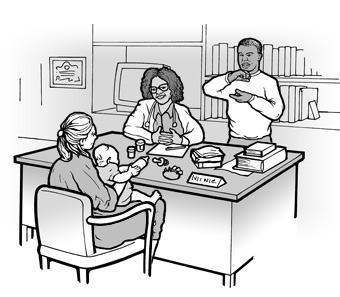- Home
- Medical news & Guidelines
- Anesthesiology
- Cardiology and CTVS
- Critical Care
- Dentistry
- Dermatology
- Diabetes and Endocrinology
- ENT
- Gastroenterology
- Medicine
- Nephrology
- Neurology
- Obstretics-Gynaecology
- Oncology
- Ophthalmology
- Orthopaedics
- Pediatrics-Neonatology
- Psychiatry
- Pulmonology
- Radiology
- Surgery
- Urology
- Laboratory Medicine
- Diet
- Nursing
- Paramedical
- Physiotherapy
- Health news
- Fact Check
- Bone Health Fact Check
- Brain Health Fact Check
- Cancer Related Fact Check
- Child Care Fact Check
- Dental and oral health fact check
- Diabetes and metabolic health fact check
- Diet and Nutrition Fact Check
- Eye and ENT Care Fact Check
- Fitness fact check
- Gut health fact check
- Heart health fact check
- Kidney health fact check
- Medical education fact check
- Men's health fact check
- Respiratory fact check
- Skin and hair care fact check
- Vaccine and Immunization fact check
- Women's health fact check
- AYUSH
- State News
- Andaman and Nicobar Islands
- Andhra Pradesh
- Arunachal Pradesh
- Assam
- Bihar
- Chandigarh
- Chattisgarh
- Dadra and Nagar Haveli
- Daman and Diu
- Delhi
- Goa
- Gujarat
- Haryana
- Himachal Pradesh
- Jammu & Kashmir
- Jharkhand
- Karnataka
- Kerala
- Ladakh
- Lakshadweep
- Madhya Pradesh
- Maharashtra
- Manipur
- Meghalaya
- Mizoram
- Nagaland
- Odisha
- Puducherry
- Punjab
- Rajasthan
- Sikkim
- Tamil Nadu
- Telangana
- Tripura
- Uttar Pradesh
- Uttrakhand
- West Bengal
- Medical Education
- Industry
US : Doctors may accept low fee from Medicare, but not from all patients

Some medical specialists in the U.S. charge uninsured and out-of-network patients several times more for healthcare services than what they accept from the government insurance plan known as Medicare, says a new study.
Anesthesiologists, certain radiologists and emergency medicine doctors were among the medical specialists who often charged four to six times more than what they accept from Medicare for the same services, researchers found.
"I want to raise awareness of some specialists' profit-driven behaviors," said lead author Ge Bai, of the Johns Hopkins Carey Business School in Baltimore. "Then, we can look for solutions."
Bai and Gerard Anderson of the Johns Hopkins Bloomberg School of Public Health analyzed Medicare data on 429,273 doctors in 54 different medical specialties.
According to the website of the Kaiser Family Foundation, a non-profit organization focusing on national health issues, Medicare payments are based on the average costs of providing care to a Medicare patient, as well as other provider expenses such as malpractice insurance. Medicare's fee schedule, however, is subject to a formula designed to control government spending that calls for regular cuts in physician payments. To prevent these cuts, policymakers have overridden the formula multiple times.
Bai and Anderson calculated so-called excess charges from doctors by dividing the amount providers accept from Medicare by the price they charge other patients for the same service.
Overall, half of the doctors charged 2.5 times what Medicare paid for the same services.
Half of doctors specializing in general or internal medicine, family practice, psychiatry, dermatology, allergy and immunology and geriatric medicine charged 1.6 to 2 times more than what Medicare paid.
On the other end of the spectrum, half of anesthesiologists charged patients about 6 times more than what they accepted from Medicare for the same services. Half of interventional radiologists charged at least 4.5 times more than what they accepted from Medicare. Emergency medicine doctors charged 4 times more than what Medicare paid.
"We were really surprised by the systematic pattern," said Bai. "The (physicians) patient don’t have the option to choose have much higher markups than . . . physicians that patients have the option to choose."
For example, a person can likely shop around for a general or family physician, but a person having a heart attack probably can't shop around to find an anesthesiologist or interventional radiologist.
If those doctors with high excess charges are out of a patient's network, they may end up with a high bill later on.
The researchers also found that these excess charges varied by state and region.
Bai said people can prevent high medical bills from these excess charges by asking hospitals if every healthcare provider involved with their care will be in their insurance network.
Additionally, she said, laws like one passed in New York in 2014 that limit out-of-network costs for emergency medical services may help people avoid crushing expenses.
"The problem is that the public and policymakers don’t realize such a big problem exists here," she told Reuters Health.
(By Andrew M. Seaman)


